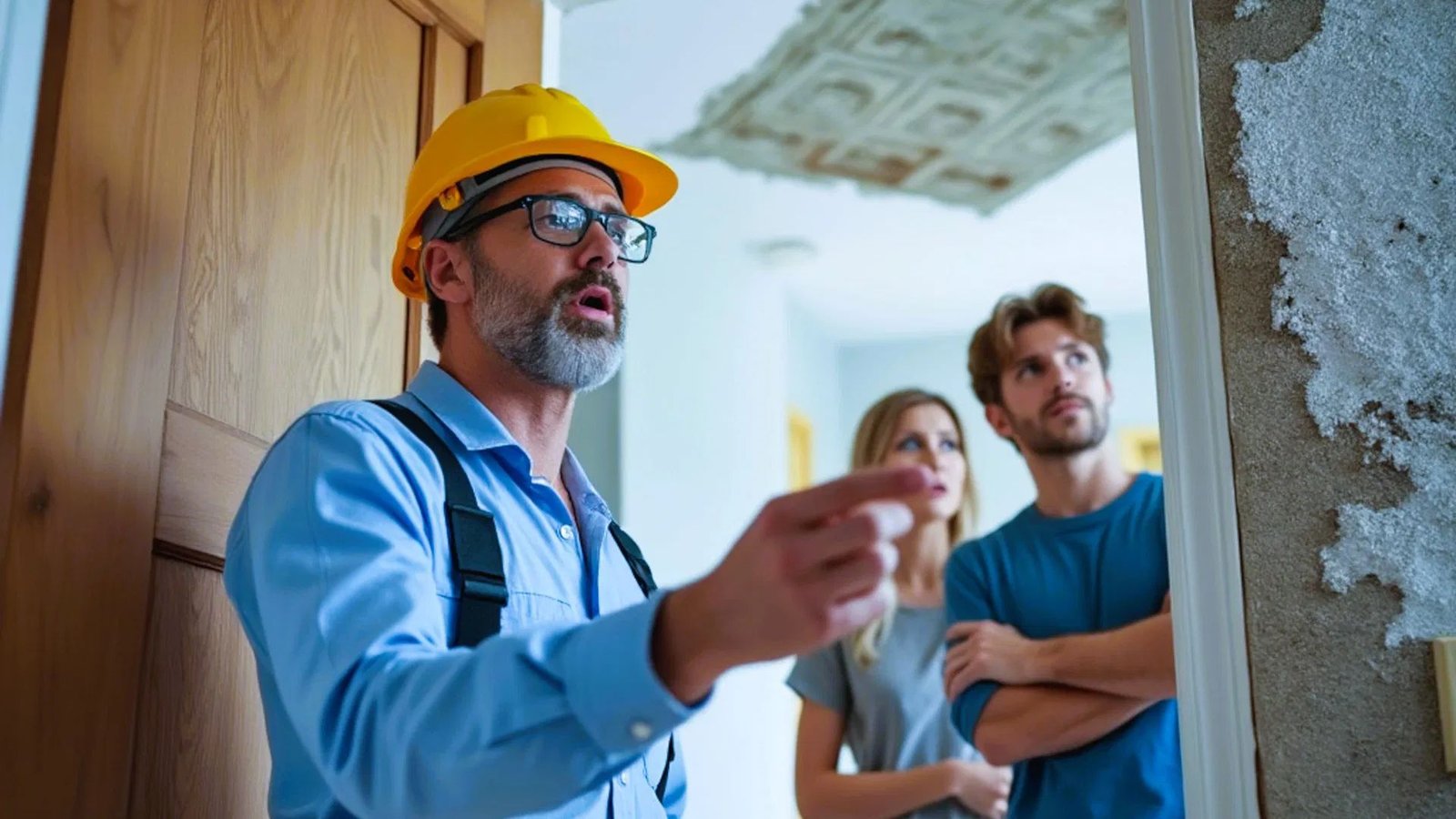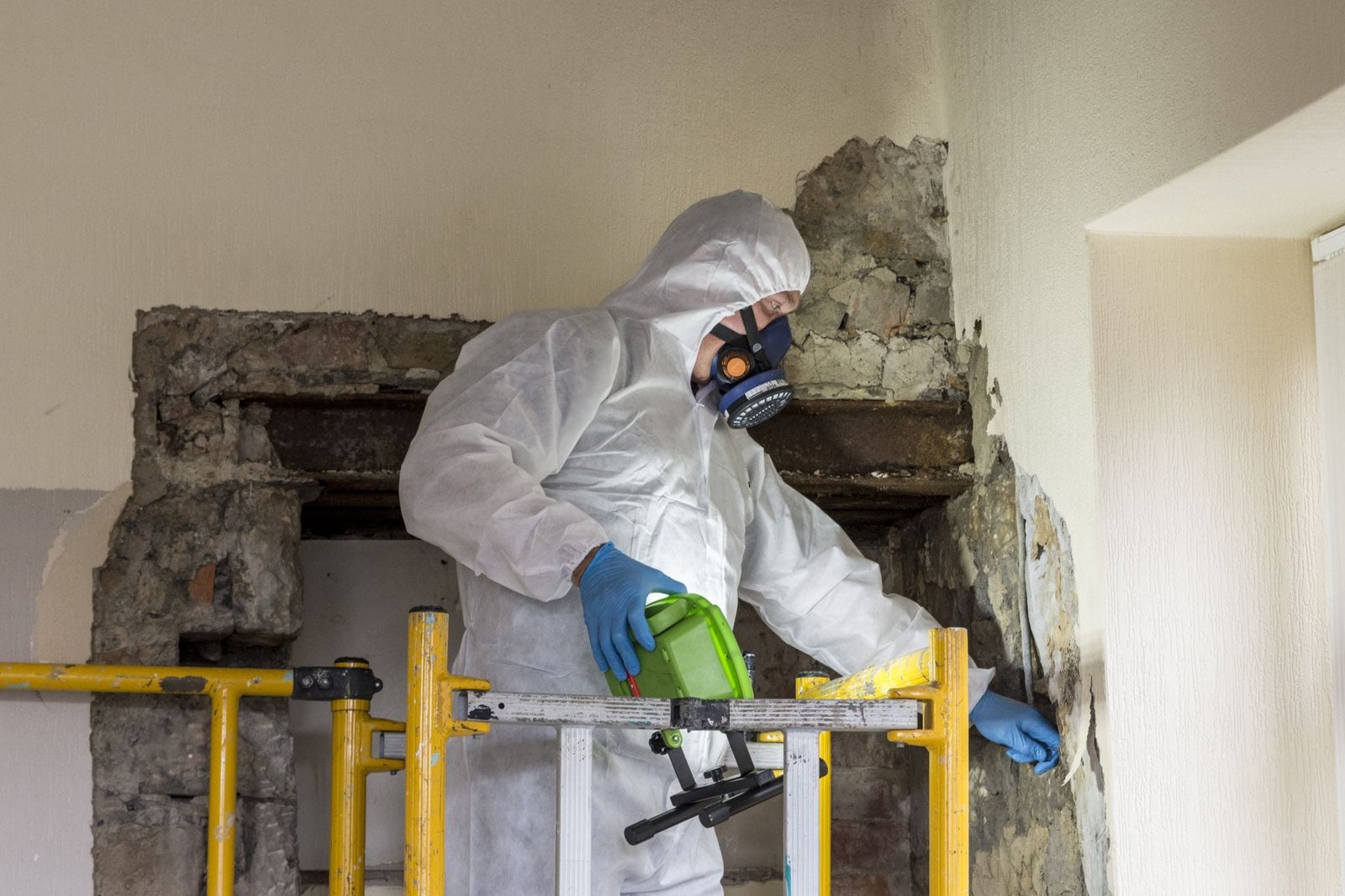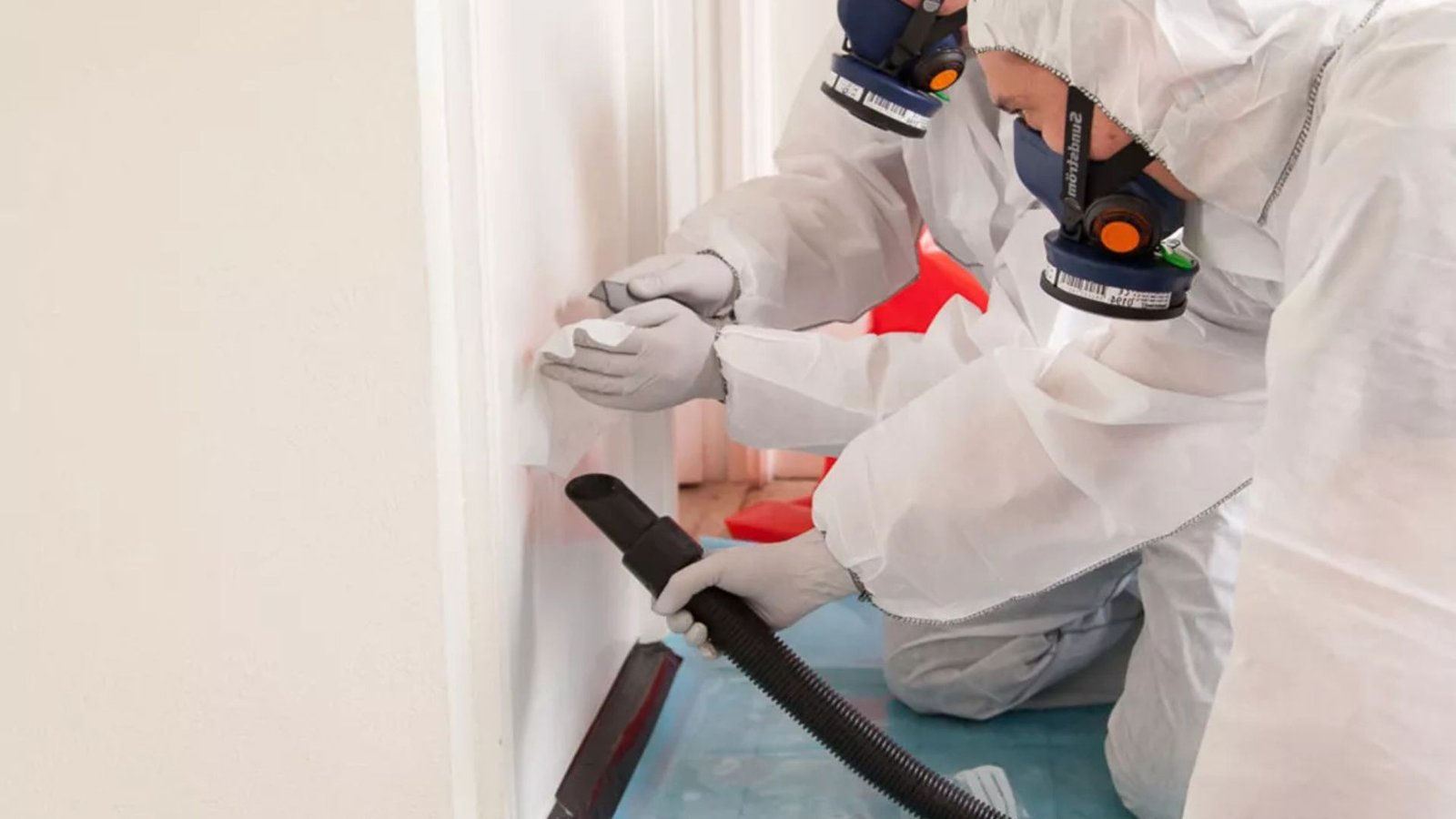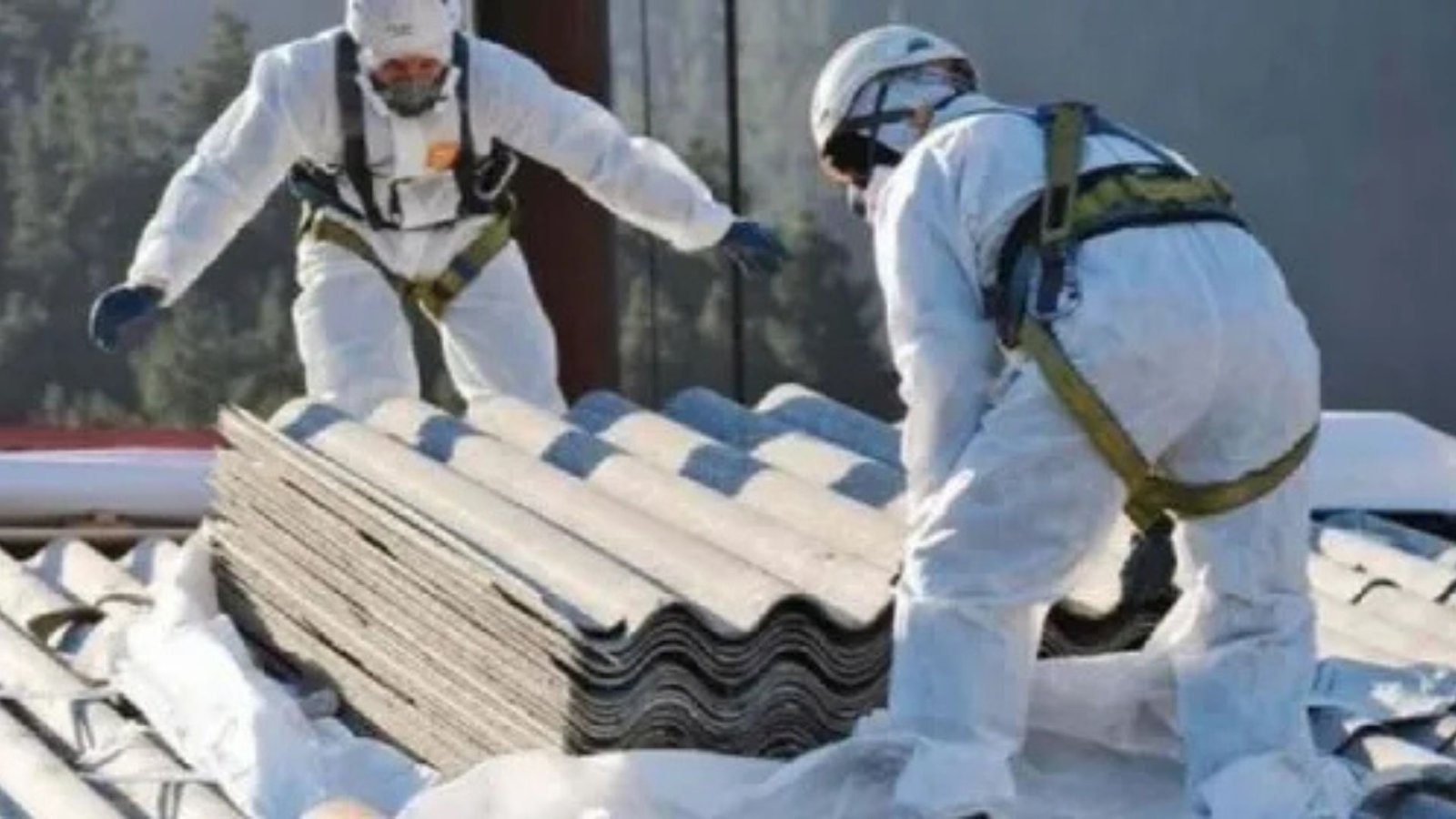Renovating your home can be an exciting and rewarding project, but it also comes with some risks, especially if you’re dealing with an older property. One of the most dangerous hidden risks in older homes is asbestos. Asbestos was widely used in construction materials up until the 1980s, but when disturbed, it can release harmful fibres into the air, posing serious health risks. That’s why asbestos testing is essential before starting any renovation work.
In this article, we’ll discuss why you need asbestos testing before a renovation and how it can protect your health and property.
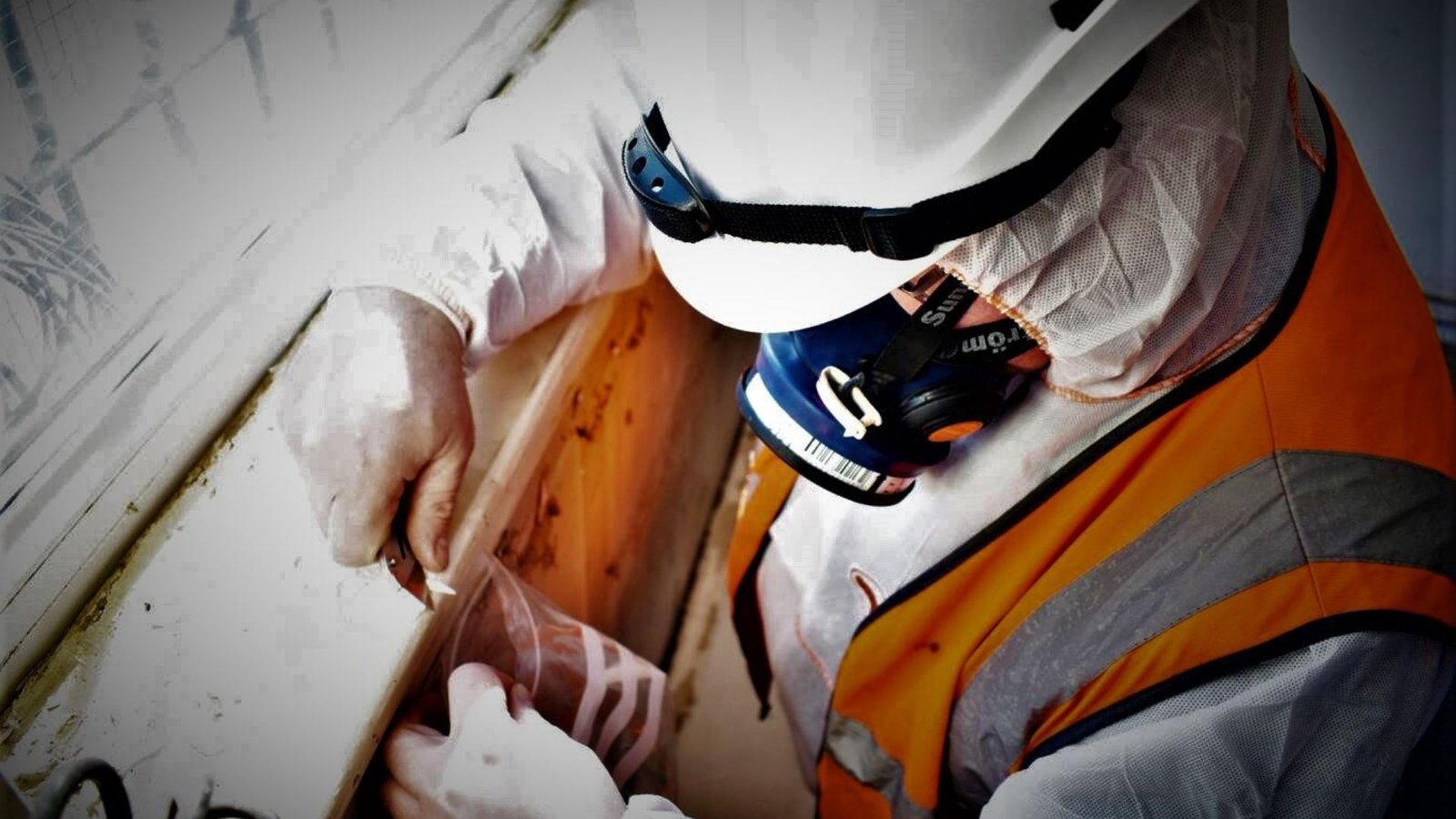
1. Asbestos Poses Serious Health Risks
Asbestos is a naturally occurring mineral that was used in a variety of construction materials for its heat resistance and strength. However, when disturbed, asbestos fibres can become airborne and are easily inhaled, which can lead to severe health issues. Long-term asbestos exposure can cause conditions like lung cancer, asbestosis, and mesothelioma.
Health Risks of Asbestos Exposure
- Asbestosis: A lung condition that causes scarring and difficulty breathing.
- Lung Cancer: Asbestos exposure is a major risk factor for developing lung cancer.
- Mesothelioma: A rare cancer that affects the lining of the lungs, abdomen, or heart, and is primarily caused by asbestos exposure.
If you’re planning to disturb or remove materials in your home that may contain asbestos, it’s crucial to test for it before starting work. Early testing can prevent the risk of asbestos fibre release during renovations.
2. Renovations Can Disturb Asbestos Materials
Older homes, especially those built before 1980, are more likely to contain asbestos-containing materials (ACMs). These materials were commonly used in insulation, roofing, flooring, and more. While asbestos is not harmful if it is undisturbed and intact, renovations often involve tearing down walls, removing flooring, or disturbing other materials where asbestos may be present. When these materials are disturbed, tiny asbestos fibres are released into the air, and they can be inhaled easily.
Common Materials That May Contain Asbestos
- Insulation: Asbestos was commonly used for insulating pipes, attics, and walls.
- Flooring: Vinyl tiles, linoleum, and the adhesive used to install these materials may contain asbestos.
- Ceiling Tiles: Textured ceiling tiles, especially “popcorn” ceilings, may contain asbestos.
- Roofing and Siding: Some roofing materials and siding contain asbestos for fireproofing purposes.
- Textured Paints and Plaster: Some older paints and plaster may have asbestos mixed in.
If you’re planning to renovate any area that has these materials, asbestos testing should be a top priority to avoid dangerous exposure.
3. Asbestos Testing Ensures Safe Renovations
Before beginning any renovation project, it’s important to identify whether asbestos is present in the materials you plan to disturb. Asbestos testing involves collecting samples of suspicious materials and sending them to a certified lab for analysis. This can help determine if asbestos is present and, if so, in what quantity.
How Testing Helps
- Prevents Exposure: If asbestos is detected, the testing allows you to take appropriate precautions or have materials professionally removed before renovation begins.
- Guides Renovation Planning: Knowing whether asbestos is present can influence the renovation process. For example, if asbestos is found in insulation, it may need to be removed by professionals before any walls are torn down.
- Compliance with Regulations: In many areas, specific laws govern how asbestos must be handled during renovations. Testing helps you comply with these regulations to avoid penalties.
Having a professional asbestos test before you start your renovation project ensures that you can carry out the work safely, without exposing anyone to dangerous asbestos fibers.
4. Protecting Your Health and the Health of Others
Asbestos exposure is particularly dangerous to workers who are renovating or demolishing materials that may contain asbestos, but it also affects anyone who lives in or visits the home. Once asbestos fibres are released into the air, they can be inhaled and remain in the lungs for a long time. Inhaling these fibres can lead to serious respiratory diseases over time.
Why Asbestos Testing Protects Your Health
- Worker Safety: Contractors and workers who are exposed to asbestos while working in your home can suffer from health problems. Testing allows you to take safety precautions to protect them.
- Family Protection: If you live in the home, asbestos testing helps prevent accidental exposure to your family during renovations.
- Long-Term Health Benefits: By testing before renovations, you reduce the risk of long-term health problems related to asbestos exposure for everyone involved.
It’s essential to prioritize health and safety during renovations by conducting asbestos testing to ensure everyone is protected from harmful exposure.
5. Legal Requirements for Asbestos Testing
In many places, local laws and regulations require asbestos testing before certain types of renovations, especially those involving demolition or disturbing materials that could contain asbestos. Failing to comply with these regulations can result in hefty fines, legal liabilities, and potential harm to your health.
Compliance with Local Regulations
Many cities and states require homeowners to test for asbestos before beginning any significant renovations. In some cases, if asbestos is found, you may need to hire licensed professionals to remove or encapsulate it safely. Failing to do so could result in penalties or delays in your renovation project.
Before starting any work, be sure to check the local laws in your area to understand what’s required in terms of asbestos testing and removal. By testing early, you ensure your renovation complies with safety standards and legal regulations.
6. Avoiding Costly Remediation Efforts
While asbestos testing may seem like an additional upfront cost, it can save you significant money in the long run. Identifying and removing asbestos early in the renovation process can prevent costly mistakes and unexpected expenses later on.
How Early Testing Saves Money
- Proper Planning: Knowing about asbestos ahead of time allows you to plan your renovation project around the need for safe removal, preventing delays and complications.
- Prevents Further Contamination: Disturbing asbestos-containing materials can spread asbestos fibres to other areas of the home. Testing beforehand allows you to avoid cross-contamination and minimize cleanup costs.
- Reduces Legal Risks: Testing ensures that you comply with local regulations, preventing fines and legal fees associated with non-compliance.
By investing in asbestos testing early, you can avoid costly remediation work and ensure a smooth renovation process.
7. Peace of Mind During Renovations
One of the most significant benefits of asbestos testing before a renovation is peace of mind. You’ll be able to move forward with your renovation project knowing that you’ve taken the necessary steps to protect your health and the health of those around you. With asbestos testing, you can plan renovations confidently, knowing you are not exposing anyone to unnecessary risks.
The Emotional Benefits of Testing
- Less Worry: Knowing that your home is safe from asbestos exposure reduces stress and worry during renovations.
- Confidence in Contractors: When asbestos testing is done and the results are known, you can hire contractors who understand the risks and take the necessary precautions.
- Protection for Your Family: Whether you’re living in the home or renting it out, testing ensures that the environment remains safe for everyone.
Renovations are stressful enough, so knowing that you’ve taken steps to test for asbestos can give you the confidence to proceed without additional concerns.
Conclusion
Asbestos testing is essential before starting any renovation project, especially if your home was built before 1980. It protects your health, ensures the safety of your family and workers, and helps you comply with local regulations. Testing also saves money by preventing unexpected costs and complications related to asbestos exposure.
Whether you’re planning to renovate a single room or undertake a full remodel, asbestos testing is a crucial first step. Don’t take unnecessary risks—schedule a test and protect your home and health before starting your next project.

